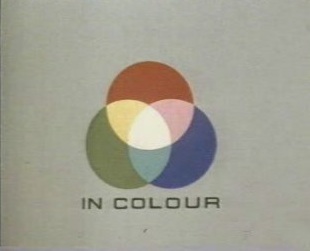
Now in its second week, Would I Lie To You? is yet another comedy panel show, something that engenders no excitement or anticipation - and yet it's actually not too bad. The only two examples of this genre that feel like they have a strong underlying premise are Have I Got News For You and They Think It's All Over; HIGNFY (the ubiquitous use of stock phrases as titles for these shows necessitates falling back on initials, to save discussion of them taking as long as an episode of A Touch of Frost) gains relevance from the week's events, while TTIAO has a breadth of specific and popular material to draw from, as sport generally encroaches into television comedy far less than current affairs.
Really, though, all of these panel formats only exist to provide the panelists with an excuse to go off on one: Paul Merton's mastery of HIGNFY is usually completely unrelated to any topical event. Would I Lie To You? succeeds in this respect by having David Mitchell and Lee Mack as captains; Mitchell, though dangerously close to reaching panel show saturation, is undeniably in his element, and Mack can pull his weight; on the basis of last night's episode, the key to this show could be their stoking of a class rivalry on the Merton/Hislop model. What sits most oddly in this show, however, is not the blatant crib from 8 out of 10 Cats (guitar-driven theme tune, mock-pompous introduction of the guests, showman's entrance of the host), but Angus Deayton. It's hackneyed now to say how his absence from HIGNFY has reinvigorated that show, but it has also allowed to us forget him - and for him to reappear in a similar premise, reading the same tortuous links, makes you feel like you've slipped 15 years back in time.
So, in short, it passes half an hour, but I'll never set the timer if I'm out.
It does bring me to a particular bugbear, however. In what we must call "the old days" there was a sense of occasion to guests appearing on this kind of programme; maybe television itself felt more special just because there was less of it. But you did feel that an effort had been made, and I've realised why - jugs of water.
On any kind of panel show, or any kind of programme where people were expected to sit and talk at length, there was always a glass carafe of water and a couple of glasses. I remember noticing this as a child, because someone stopping to take a sip of water felt odd - it went against the flow of the rest of telly, where people knew their lines and things happened and no one stopped to refresh themselves. Then, sometime in the last few years, the carafes vanished, replaced by plastic bottles. The problem is that these are bottles of commercially bought water, and so have to stay out of sight, which means that, now, quiz rounds are punctuated by shots of guests bobbing down and to their side as they replace small bottles of Volvic. This may not seem like a matter of great import, but it makes everything feel a bit shabby: rather than the impression that someone had gone to the trouble of making sure there was water available, and creating a pleasant atmosphere for the panelists, you can't help but picture some beleaguered runner, sent out at the last minute and struggling back from the local cornershop.
Television is about putting on a show, making an effort; that carafe of water is as much a part of the aesthetic of the programme as the custom-built set. Jonathan Ross does it on his show, but what's the point of him appearing from behind double doors, in a showbiz suit, if he's going to blow it all a moment later bobbing down for a plastic bottle? They should put a couple of plastic chairs down in the empty studio and he could roll up in his own clothes to do the show (though, admittedly, he's probably the wrong person to pick for this example). It makes everything look cheap, while every other element of the show is attempting to look as though money has been spent, and as I'm not sure what to conclude from all this I'm just going to say - bastards.




No comments:
Post a Comment